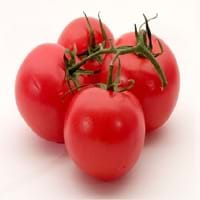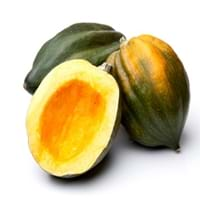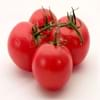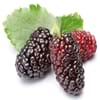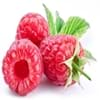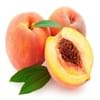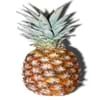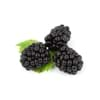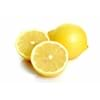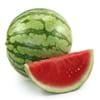Health Benefits
Anti depressant, Cancer prevention, Heart care, Muscle pain relief, Prevents constipation, Regulation of heart rate, Weight loss properties
Anti-inflammatory properties, Arthritis treatment, Regulates Blood Sugar
General Benefits
Controls blood pressure, Eye care, Maintains healthy cholesterol level, Strengthens bones
Boosts immune system, Controls blood sugar levels, Digestive aid
Skin Benefits
Anti-aging benefits, Heals sunburn, Skin rejuvenation, Treatment of acne, Treatment of skin diseases
Nourishes skin, Protects skin from oxidative stress
Hair Benefits
Good conditioner, Prevents hair loss, Softening mask
Prevents hair loss, Promotes longer and healthier hair, Regulates hair growth
Allergy Symptoms
Anaphylaxis, Coughing, Diarrhea, Eczema, Hives, Itching sensation in throat, Nausea, Skin Rashes, Runny nose, Sneezing, Swelling of mouth, tongue or lips, Vomiting, Wheezing
Asthma, Red rash, Swelling of mouth, tongue or lips
Side Effects
Heart burn
Diarrhoea, Vomiting
Best Time to Eat
Along with meal, Don't consume at night and before bed, Morning time (before lunch)
Along with meal, As a snack in the late afternoon, Don't eat after meal, Eat the fresh ones, avoid mixing with any other foods, don't eat after meal.
Vitamin B5 (Pantothenic Acid)
Vitamin C (Ascorbic Acid)
Vitamin E (Tocopherole)
Not Available
Vitamin K (Phyllochinone)
Not Available
Lutein+Zeaxanthin
Not Available
Phytosterol
Not Available
Calories in Fresh Fruit with Peel
Calories in Fresh Fruit without Peel
Not Available
Not Available
Type
Berry, Fruit vegetable
Berry
Season
All seasons
Winter
Varieties
Better Boy, Early Girl, Beefsteak, Beefmaster, Pink Brandywinem, Caspian Pink, Thai Pinks, Hawaiian Pineapple, Kellogg’s Breakfast, Cherokee Purple, Black Ethiopian and Paul Robeson
Bush Table Queen, Heirloom Table Queen, Festival Hybrid, Early Acorn Hybrid, Table Ace, Ebony and Cream of the Crop
Color
Green, Orange, Pink, Purplish black, Red, White, Yellow
Dark green, Green-yellow, Orange green
Taste
Sour, Sweet
Sweetish
Origin
Central America, South America
Central America, North America, Unknown
Soil Type
Loam, Sandy loam
Well-drained
Climatic Conditions
Sunny, Warm
Cold, Sunny
Facts about
- Around 10,000 varieties of tomatoes are grown in the world.
- In Buñol, people celebrate the Tomatina festival where around 1.5 lakh tomatoes are used.
- As per Guinness book of records, heaviest tomato weighed 3.51 kg.
- It was named as Acorn Squash for its resemblance to a large ribbed acorn.
- It is said that squash was being grown in Mexico as long as 10,000 years ago.
- It was the first food cultivated by native American Indians.
Other Countries
Brazil, Egypt, India, Iran, Italy, Mexico, Spain, Turkey, United States of America
Egypt, India, Iran, Italy, Mexico, Russia, Turkey, Ukraine, United States of America
Top Importer
Nigeria
Costa Rica
Top Exporter
Netherlands
United States of America
Botanical Name
Solanum lycopersicum
Cucurbita Pepo
Synonym
Lycopersicon esculentum
Winter Squash
Subkingdom
Tracheobionta
Tracheobionta
Division
Magnoliophyta
Magnoliophyta
Class
Magnoliopsida
Magnoliopsida
Subclass
Asteridae
Dillenhidae
Order
Solanales
Cucurbitales
Family
Solanaceae
Cucurbitaceae
Species
S. lycopersicum
Pepo
Generic Group
Nightshade
Not Available
Compare Tomato and Acorn squash
It is important compare Tomato and Acorn squash as both the fruits have a different nutritional value. Their comparison can be done on the basis of their vitamin and mineral content, calories, benefits as well as characteristics, making it easier for us to choose the best fruit for our diet. Their general health benefits are as follows:
Tomato Benefits: controls blood pressure, eye care, maintains healthy cholesterol level and strengthens bones.
Acorn squash Benefits: boosts immune system, controls blood sugar levels and digestive aid.
Fruits are also used as a remedy for various hair problems. The hair benefits of Tomato are: good conditioner, prevents hair loss and softening mask and hair benefits of Acorn squash are: prevents hair loss, promotes longer and healthier hair and regulates hair growth. Some fruits are known to cause allergic reactions. The allergy symptoms of first fruit are: anaphylaxis, coughing, diarrhea, eczema, hives, itching sensation in throat, nausea, skin rashes, runny nose, sneezing, swelling of mouth, tongue or lips, vomiting and wheezing and the symptoms of second fruit are: asthma, red rash and swelling of mouth, tongue or lips. Get sorted Tomato vs Acorn squash comparison with the help of fruit comparison tool by fruitvs.com.
